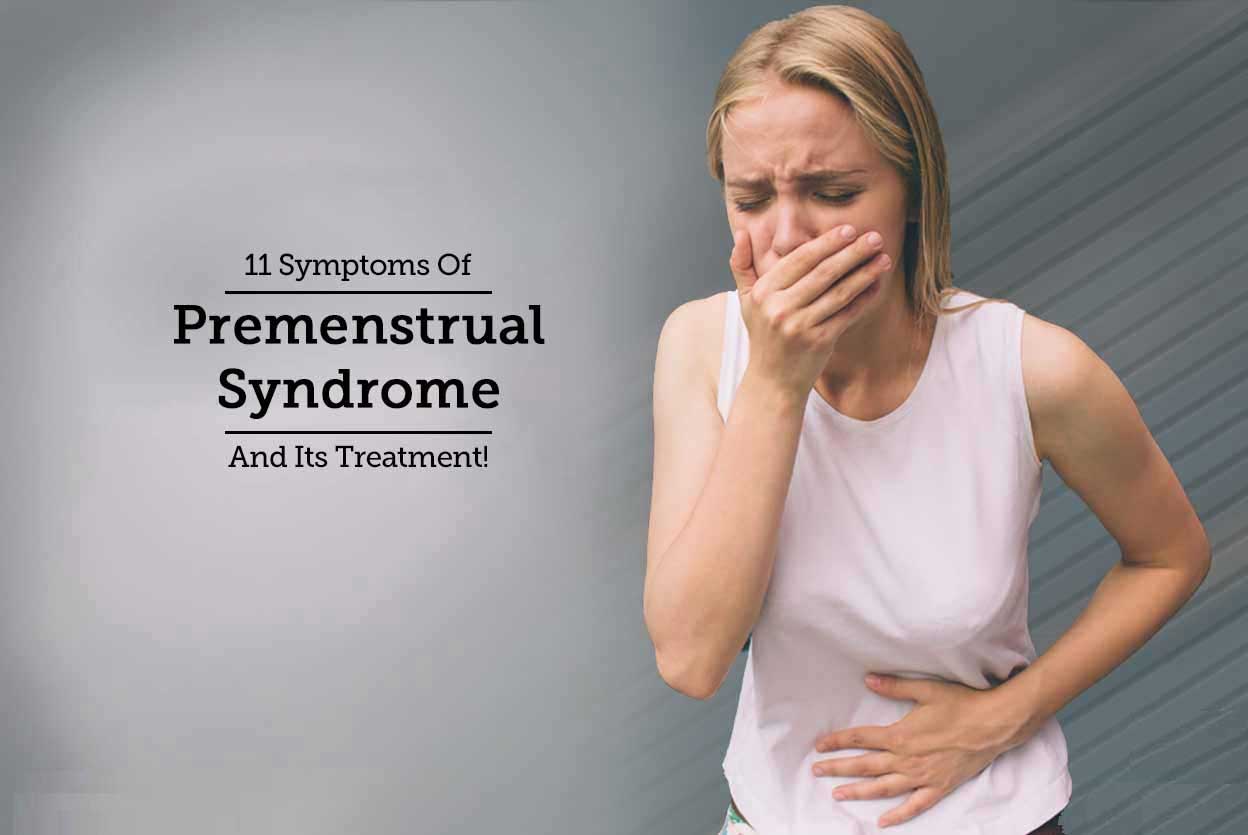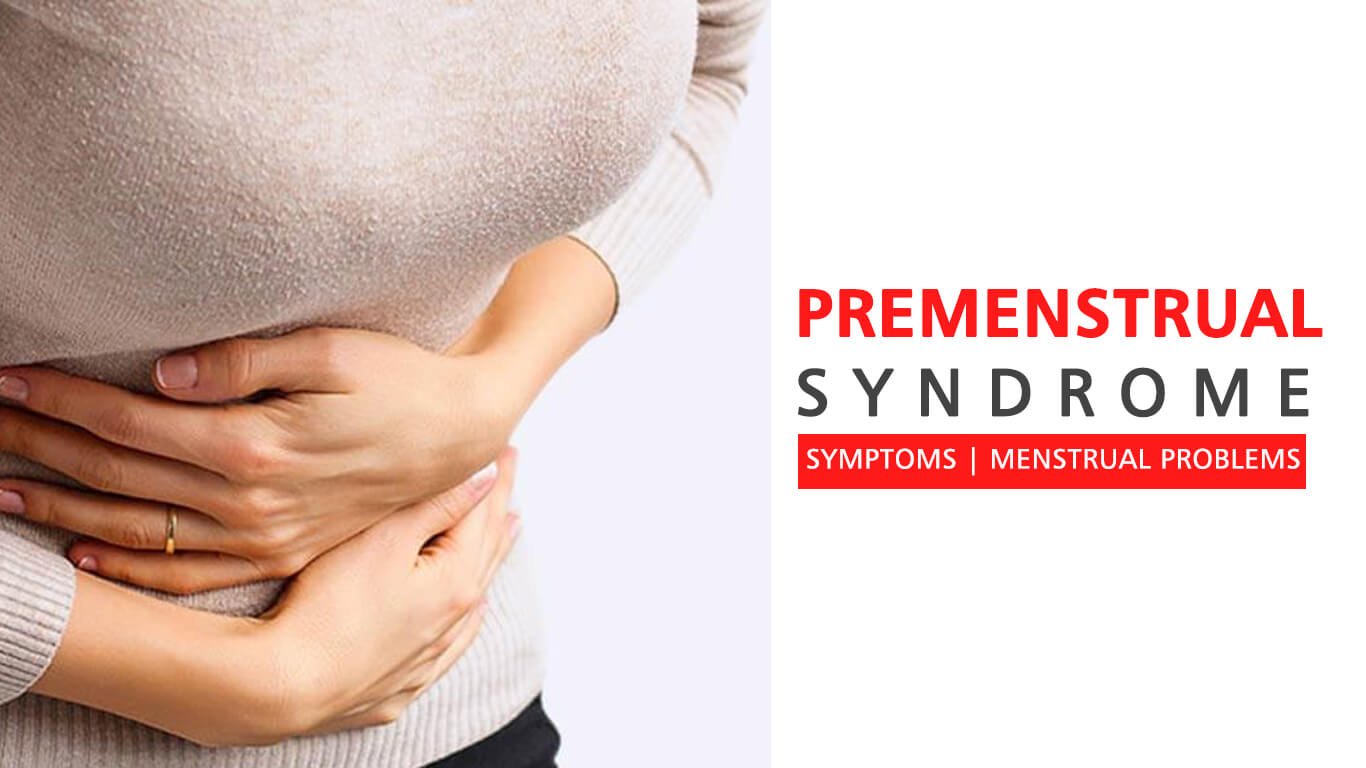WHAT IS PREMENSTRUAL SYNDROME?
Premenstrual syndrome (PMS) has a broad variety of signs and symptoms, including emotional instability, sensitive breasts, craving for food, tiredness, irritability, and depression. It is approximated that as many as three of every four menstruating women have experienced some type of premenstrual syndrome.
Symptoms tend to repeat in a predictable pattern. But the physical and emotional changes you experience with premenstrual syndrome (PMS) might range from just slightly noticeable all the way to intense.
Still, you do not have to let these issues control your life. The treatments and lifestyle changes could help you lower or control the signs and symptoms of premenstrual syndrome (PMS).

PREMENSTRUAL SYNDROME SYMPTOMS
The list of possible signs and symptoms for premenstrual syndrome is long, but most females only experience a few of these problems.
Emotional and behavioral signs and symptoms
- Tension or anxiety
- Depressed mood
- Crying spells
- Emotional Instability and irritability or anger
- Appetite changes and food cravings
- Difficulty falling asleep (insomnia)
- Social withdrawal
- Poor concentration
- Change in libido
Physical signs and symptoms
- Joint or muscle pain
- Headache
- Fatigue
- Weight gain associated with fluid retention
- Abdominal bloating
- Breast tenderness
- Acne flare-ups
- Constipation or diarrhea
- Alcohol intolerance
For some, the physical pain and emotional stress are severe enough to affect their everyday lives. Regardless of symptom severity, the signs and symptoms usually disappear within 4 days after the start of the menstrual period for most women.
But a small number of females with premenstrual syndrome have disabling symptoms every month. This type of premenstrual syndrome (PMS) is known as premenstrual dysphoric disorder (PMDD).
Premenstrual dysphoric disorder (PMDD) signs and symptoms include depression, mood swings, anger, anxiety, feeling overwhelmed, trouble concentrating, irritability, and tension.

WHEN SHOULD YOU SEE A DOCTOR?
If you have not been able to manage your premenstrual syndrome with lifestyle adjustments and the signs and symptoms of premenstrual syndrome (PMS) are affecting your health and everyday activities, see your doctor or primary care physician.
PREMENSTRUAL SYNDROME CAUSES
Exactly what causes premenstrual syndrome (PMS) is not known, but a number of factors might contribute to the condition:
- Cyclic changes in hormones – The signs and symptoms of premenstrual syndrome (PMS) change with hormonal fluctuations and disappear with pregnancy and menopause.
- Chemical changes in the brain – The fluctuations of serotonin, a brain chemical (neurotransmitter) that is thought to play an important role in mood states, can activate premenstrual syndrome (PMS) signs and symptoms. Insufficient amounts of serotonin might contribute to premenstrual depression, as well as to tiredness, craving for food, and sleep issues.
- Depression – Some females with severe premenstrual syndrome (PMS) have undiagnosed depression, though depression alone does not cause all of the symptoms.

PREMENSTRUAL SYNDROME DIAGNOSIS
There are no unique physical results or laboratory tests to positively diagnose premenstrual syndrome (PMS). Your doctor or primary care physician might attribute a specific sign or symptom to premenstrual syndrome (PMS) if it is part of your predictable premenstrual pattern.
To help establish a premenstrual pattern, your doctor or primary care physician might ask you to record your signs and symptoms on a calendar or in a diary for at least two menstrual cycles. Note the day that you first notice premenstrual syndrome (PMS) signs and symptoms, as well as the day they disappear. Also, be sure to mark the days your period begins and ends.
Specific conditions might mimic premenstrual syndrome (PMS), including chronic fatigue syndromes, thyroid disorders, and mood disorders, like depression and anxiety. Your health care provider might request tests, like a thyroid function test or mood screening tests to help provide a correct diagnosis.

PREMENSTRUAL SYNDROME TREATMENT
For many females, lifestyle adjustments could help ease premenstrual syndrome (PMS) symptoms. But depending upon the severity of your signs and symptoms, your doctor or primary care physician might prescribe one or more medications for premenstrual syndrome.
The success of medications in relieving signs and symptoms varies among females. Frequently prescribed medications for premenstrual syndrome include:
- Antidepressants – Selective serotonin reuptake inhibitors (SSRIs) which include fluoxetine (Prozac, Sarafem), paroxetine (Paxil, Pexeva), sertraline (Zoloft), and others have been successful in lowering mood symptoms. Selective serotonin reuptake inhibitors (SSRIs) are the primary treatment for serious premenstrual syndrome (PMS) or premenstrual dysphoric disorder (PMDD). These medications are generally taken every day. But for some females with premenstrual syndrome (PMS), the use of antidepressants might be restricted to the two weeks before menstruation starts.
- Nonsteroidal anti-inflammatory drugs (NSAIDs) – Taken before or at the beginning of your period, nonsteroidal anti-inflammatory drugs (NSAIDs) like ibuprofen (Advil, Motrin IB, others) or naproxen sodium (Aleve) could relieve cramping and breast discomfort.
- Diuretics – When exercise and limiting salt intake are not sufficient to lower the weight gain, inflammation, and bloating of premenstrual syndrome (PMS), taking water pills (diuretics) could help your body shed excess fluid through your kidneys. Spironolactone (Aldactone) is a diuretic that could help relieve some of the signs and symptoms of premenstrual syndrome (PMS).
- Hormonal contraceptives – These prescription medications prevent ovulation, which might bring comfort from premenstrual syndrome (PMS) signs and symptoms.
If you or anyone you know is suffering from premenstrual syndrome (PMS), our expert providers at Zenith Injury Relief & Wellness Clinic will take care of your health and help you recover.
Call 972-210-0033 to schedule your appointment, and begin living your life pain-free.
